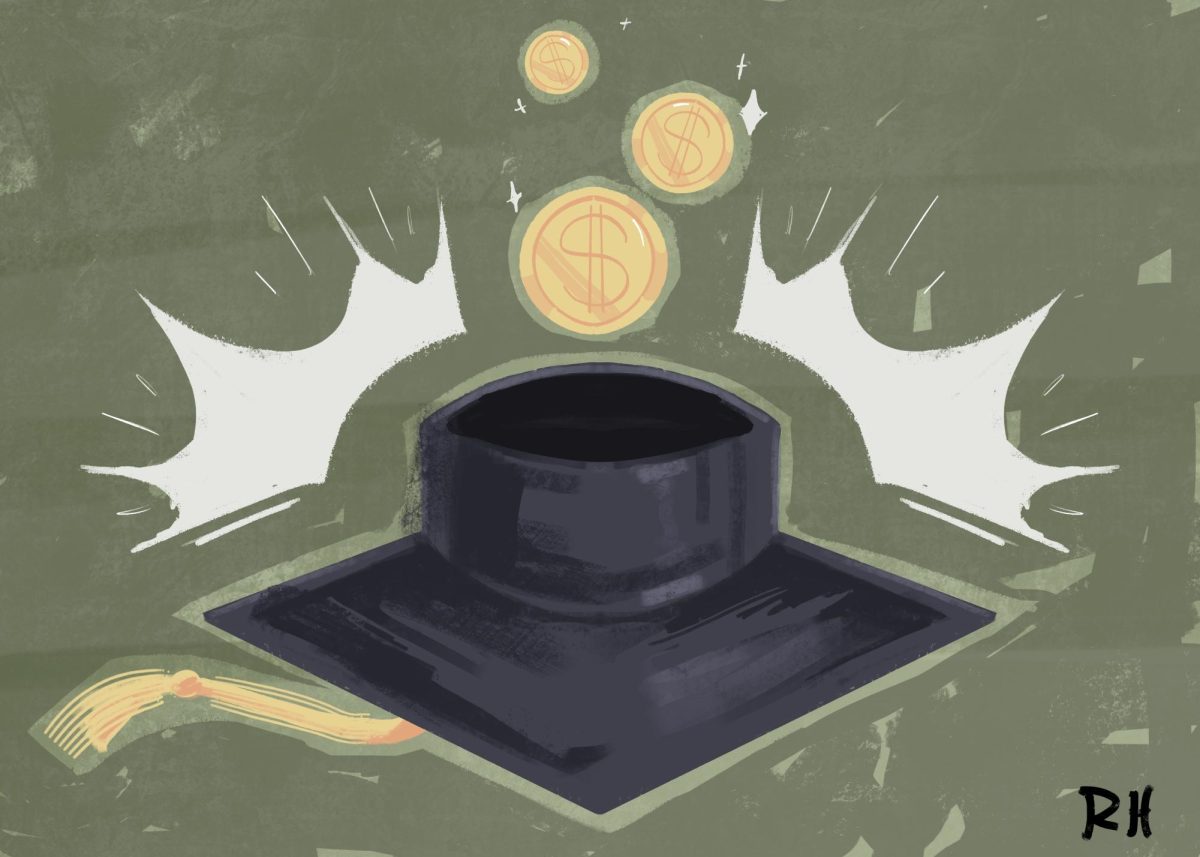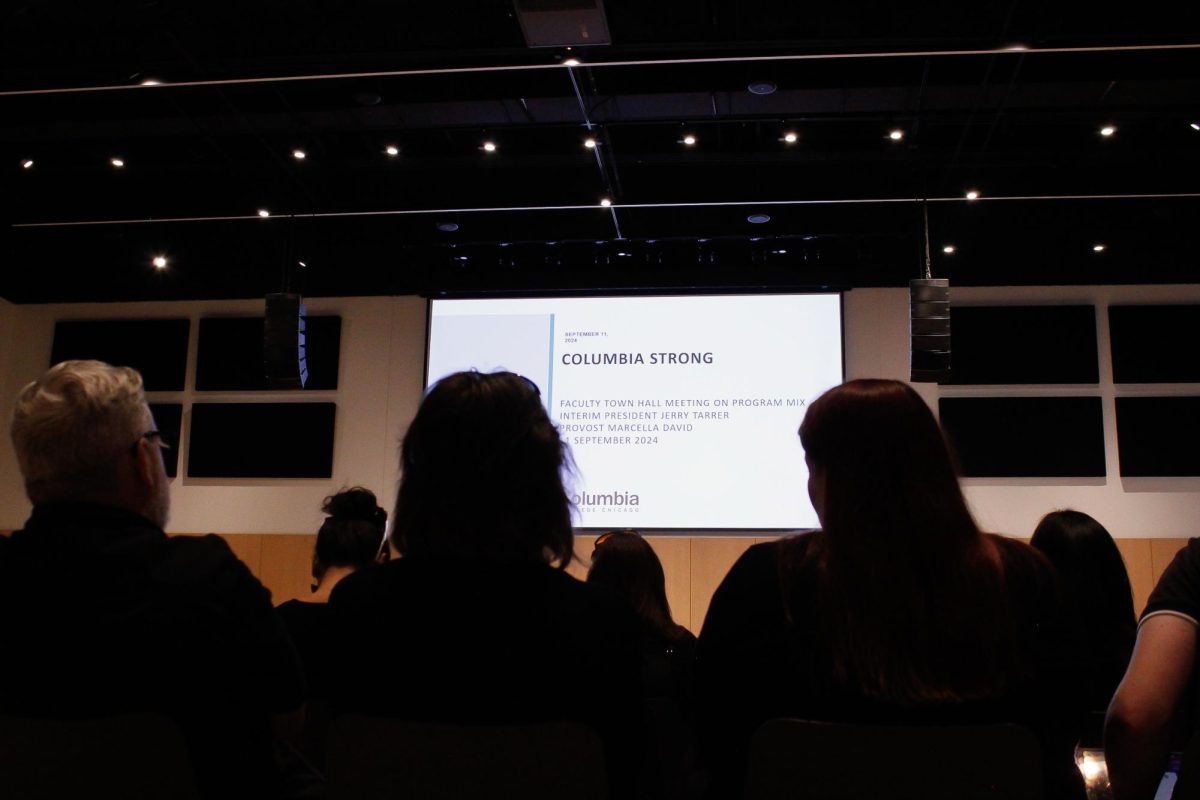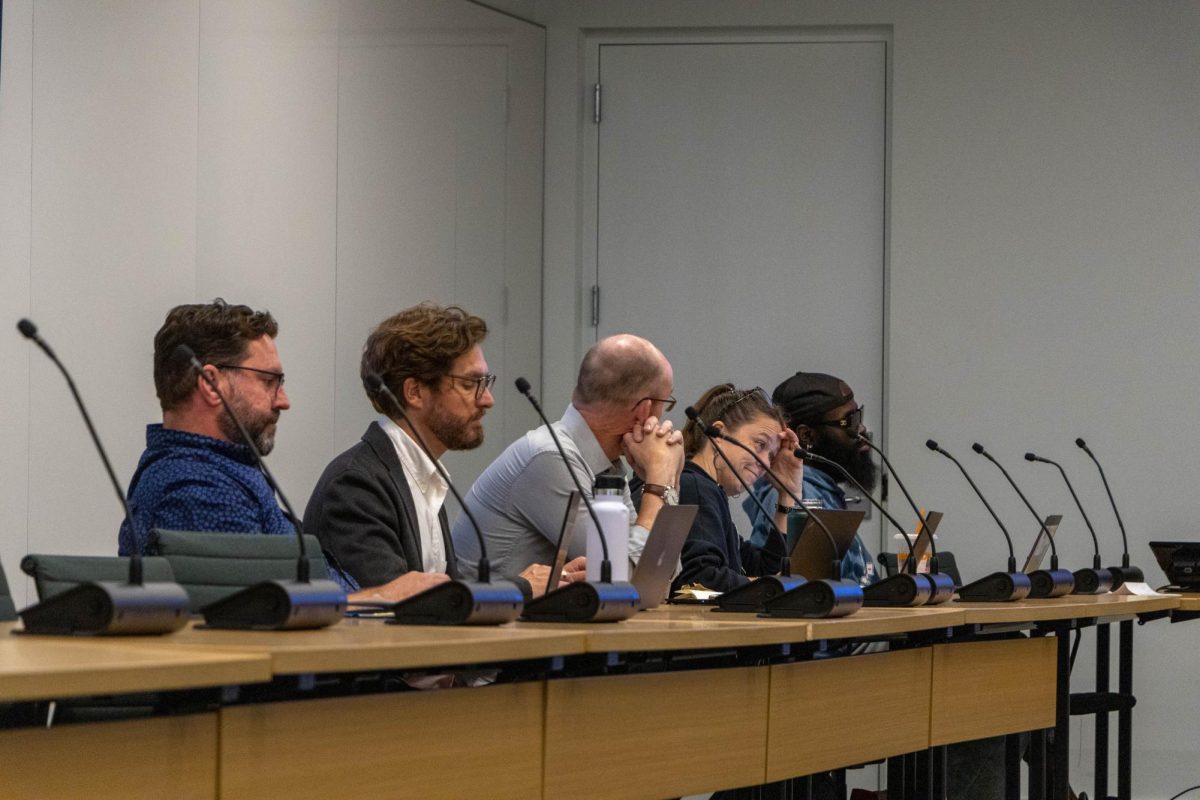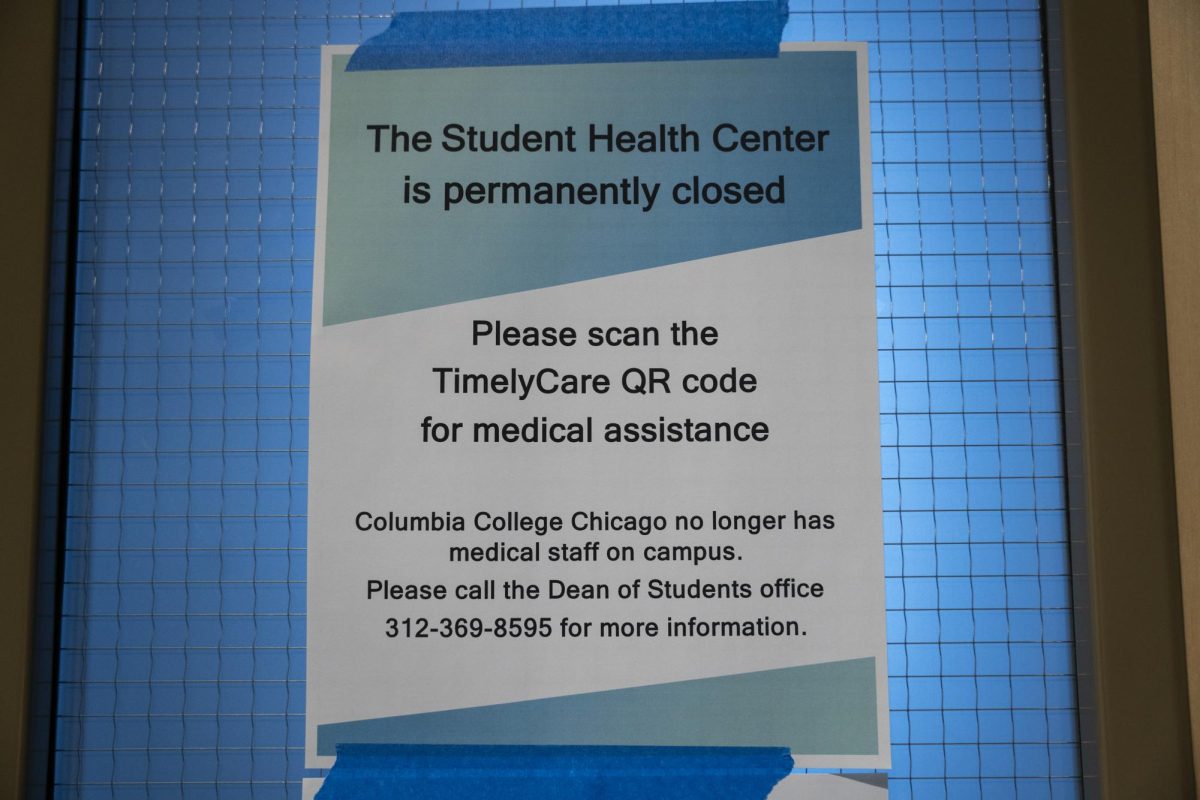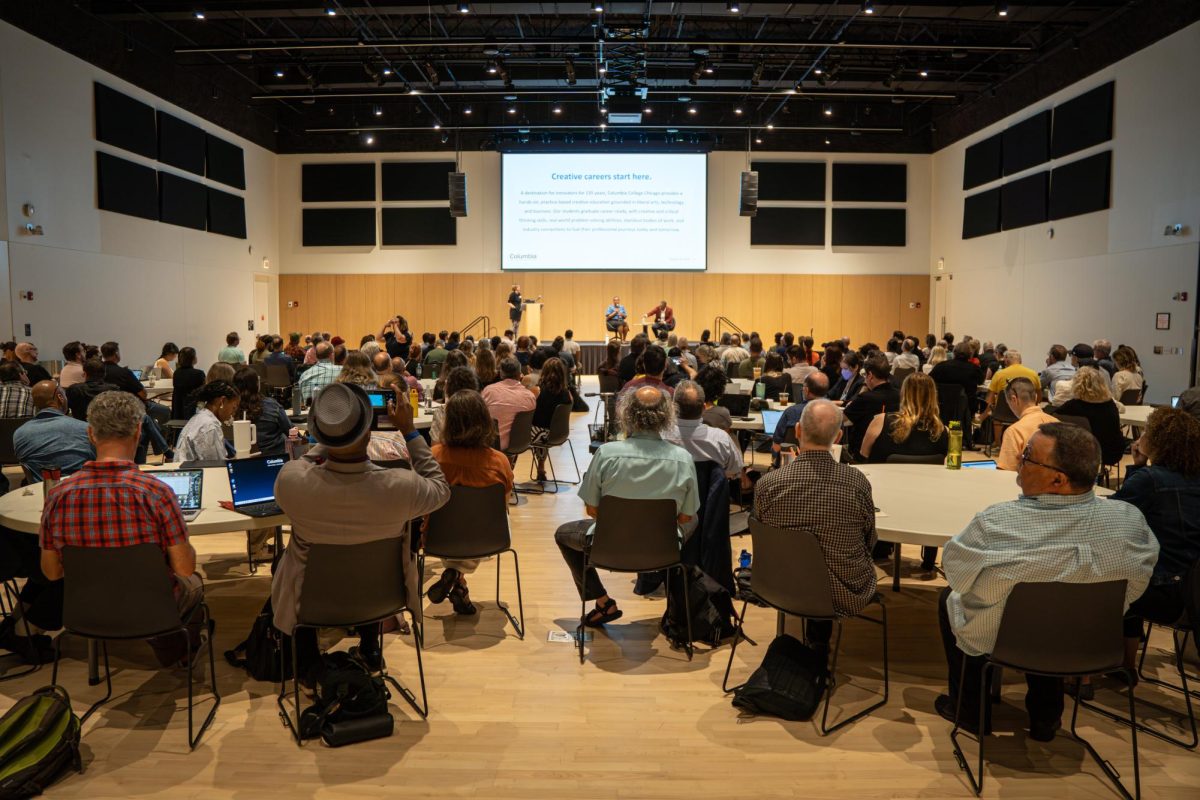The college is no longer picking up garbage from individual offices and has removed trash cans from classrooms and other spaces around campus to cut costs.
The Facilities Planning and Management department, which oversees cleaning, engineering and maintenance, also lost an unknown number of cleaning staff who were laid off. One cleaner told the Chronicle it was close to 10 people.
Ann Kalayil, associate vice president of Facilities Planning and Management referred the Chronicle to Lambrini Lukidis, associate vice president of Strategic Communications and External Relations. Lukidis said she did not have that specific information related to staffing and budget.
The college first communicated facilities-related changes in an email in late August to faculty and staff. But it has provided no further information since or to students.
The Chronicle has observed bags of trash piled up outside of offices, including the Academic Center for Tutoring. Departments have to request special pick-up for garbage that cannot fit in provided containers.
All individual garbage bins in office suites must now be taken to containers in main hallways.
Maps are available for waste receptacle locations.
Evelyn Vega, a junior music business major, said it has been hard finding trash cans on campus recently.
“In the classrooms, I feel like there never really are trash cans,” she said. “I kind of have to go outside and throw it away, which is kind of inconvenient because I’m learning in class.”
Lukidis said classrooms don’t have individual trash bins, which has always been the case per existing policies, “and students are expected to use the bins located in communal areas.”
But many classrooms did have trash cans.
Janitorial services will continue to collect garbage and compost in common areas. According to FPM, this will help eliminate over 2,000 plastic liners from landfills daily.
These plastic liners will only be provided as needed by submitting a work order request to facilities.
“I feel like it’s insignificant compared to how much they pay for the Student Center, so I don’t know why they’re cutting things that don’t make sense,” said junior music business major Cheyanne Owens.
Facilities on campus were among the committees affected by proposed budget reductions shared in an email last spring
The report recommended cutting staff and expenses to maintain essential systems, including life-safety measures.
“We did not reduce the number of bins; they remain the same,” Lukidis said. “However, Facilities are only emptying community bins. For example, trash cans in individual offices are being emptied by the person who occupies the office/cubicle, into community bins that exist within the suite.”
In addition to reducing garbage removal in offices and office suites, classroom whiteboards and chalkboards will be cleaned weekly instead of nightly, and the school or administrative unit requesting extra cleaning will be charged.
Kalayil told the Chronicle that cleaners are asked to remove trash bins from classrooms if they find them as part of routine summer maintenance and inspections, although there are exceptions for the Fashion Lab, MakerSpace and wood shop. Kalayil added that this was “operational practice” and not a policy.
As the Chronicle previously reported, the FPM also worked with the Student Government Association to develop a posting policy and mapped locations to reduce items going into the landfill.
Kam Pate, a senior photography major, did not know about the changes to the trash system on campus. She said that she has not noticed a change in the accessibility of trash cans.
“Out of all the things the school has going on, I don’t think the garbage is the most important part,” Pate said. “There are a bunch of things that they could change but I would think out of all the things, garbage would be the least of their priorities.”
This story was updated to include additional information from Kalayil provided by email on Wednesday, Nov. 14.
Additional reporting by Maya Liquigan
Copy edited by Vanessa Orozco
Resumen En Español:
Para reducir costos, la universidad retiró los botes de basura de las clases y dejó de recoger basura en las oficinas individuales, lo que afectó la limpieza y la comodidad en el campus. El departamento de Planificación y Gestión de Instalaciones (FPM), responsable de la limpieza y el mantenimiento, también despidió a unos 10 miembros del personal de limpieza. Aunque se afirma que nunca se proporcionaron contenedores en las clases, estudiantes como Evelyn Vega han notado menos botes de basura accesibles, lo que hace que la eliminación de desechos sea más inconveniente.
Los recortes presupuestarios de la universidad, comunicados la primavera pasada, incluyeron reducciones en las instalaciones de basura. Ahora, las bolsas de basura individuales se proporcionan a pedido y las pizarras y los pizarrones se limpian semanalmente comparado a cada noche. Además, FPM colaboró con la Asociación de Gobierno Estudiantil para reducir el desperdicio con la implementación de una política de publicación. Algunos estudiantes, como Cheyanne Owens, cuestionan la importancia de estos recortes teniendo en cuenta otros gastos, mientras que otros, como Kam Pate, consideran que la gestión de la basura es un tema de menor prioridad para la universidad.
Resumen por Manuel Nocera
Resumen copia editada por Doreen Abril Albuerne-Rodriguez









